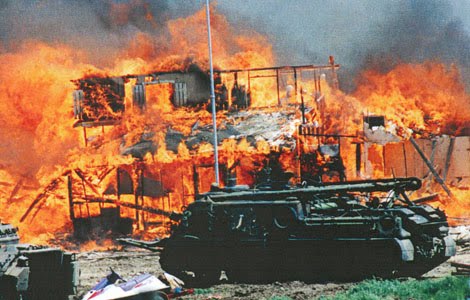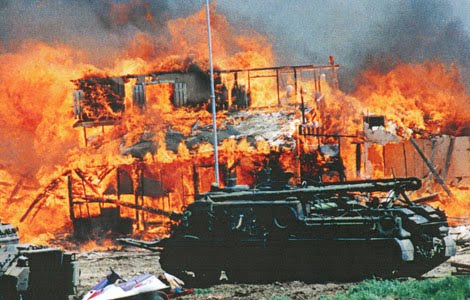
President Trump declared last week that the law enforcement should “take the guns first, go through due process second.” But the history of federal firearms enforcement shows that due process is often a mirage when federal bureaucrats drop their hammer. Before enacting sweeping new gun prohibitions, we should remember the collateral damage and constitutional absurdities from previous federal crackdowns.
Gun control advocates have called for prohibiting possession of AR-15 rifles — a ban that could create five million new felons overnight, since most owners would not meekly surrender their firearms at the nearest federal office. Others advocate outlawing all semi-automatic firearms — an edict first floated by the Clinton administration that would create tens of millions of new offenders.
But before vesting vast new power in federal enforcers, the record of the Alcohol, Tobacco and Firearms (ATF) agency must be considered. A 1982 Senate Subcommittee on the Constitution report on ATF concluded, “Enforcement tactics made possible by current firearms laws are constitutionally, legally, and practically reprehensible.” Outrageous abuses have continued to the present day. An analysis conducted for the University of Chicago found that ATF heavily targeted racial minorities in its entrapment operations. And across the nation, ATF has been caught using mentally handicapped individuals in sting operations.
Sweeping new firearms prohibitions would enable the feds to selectively target unpopular offenders. The biggest debacle resulting from prior such targeting occurred 25 years ago last week outside of Waco, Texas. The federal Alcohol Tobacco and Firearms (ATF) agency saw the Branch Davidians — a fringe Protestant group that quickly became maligned as a cult — as the perfect patsies for a high-profile raid that would make G-men look like heroes.
Waco illustrates how, if the feds decide to vilify someone, their prior efforts to comply with the law will vanish from the record. In July 1992, ATF agent Davy Aguilera visited the Branch Davidians’ gun dealer, Henry McMahon, who suggested the Davidians were illegally converting semiautomatic firearms to full automatic firing capacity, a federal felony. When Davidian leader David Koresh was told that allegation, he invited Aguilera to visit the Davidians’ residence and carry out an on-the-spot inspection. Aguilera refused the invitation and his subsequent affidavit application to search the Davidians’ residence “contained an incredible number of false statements,” according to a 1996 congressional report.
Federal agencies will likely design crackdowns on firearms violators to maximize publicity and impress Congress. On February 28, 1993, more than 70 ATF agents launched a frontal attack (including 3 military helicopters) on the Davidians’ sprawling wooden residence. Prior to the assault, the ATF alerted several television stations to assure coverage of a raid expected to seize a big cache of weapons. CBS’s 60 Minutes disclosed that ATF agents said “the initial attack on that cult in Waco was a publicity stunt — the main goal of which was to improve ATF’s tarnishedimage.” A 1996 congressional investigation noted that ATF deliberately chose a “dynamic entry approach. The bias toward the use of force may in large part be explained by a culture within ATF,” including “promotional criteria.”
Read the rest here.

